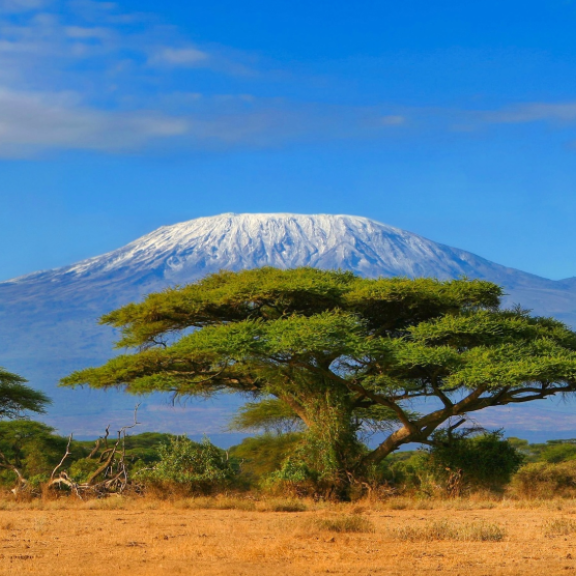
Emigrate to Tanzania
Emigrate to Tanzania: Find out the most important information for your stay here
Emigrating to Tanzania inspires many with its impressive nature, rich culture and hospitable people. Highlights such as Mount Kilimanjaro, the Serengeti and Zanzibar's beaches make the country particularly attractive. The low cost of living and cultural diversity are further advantages.
However, challenges such as poverty, limited medical care and complex bureaucracy require good preparation. Knowledge of Swahili can help you to settle in better. Anyone wishing to emigrate to Tanzania should take these aspects into account in order to make a successful new start.
Facts about Tanzania
Capital City
Dodoma
Population
67,462,121
Surface Area
364,900 mi² or 945,087 km²
Continent
Africa
Official Language
Swahili & English
Currency
Tanzanian shilling (TZS)
Emigrating to Tanzania: An overview of the political system
Emigrating to Tanzania means moving to a presidential republic with a president as head of state and head of government. The president is elected by universal suffrage and makes key decisions for the country. The political system was long dominated by the Chama Cha Mapinduzi (CCM), but in recent years other parties have emerged, leading to more diversity.
Tanzania has a federal structure with the mainland (Tanganyika) and the islands of Zanzibar having a degree of autonomy, while the final decision-making power lies with the president. Parliament plays an important role in legislation and members of parliament are also elected.
For those emigrating to Tanzania, the country offers political stability and tranquillity. The government promotes development and seeks to improve living conditions, although challenges such as poverty and inequality remain.
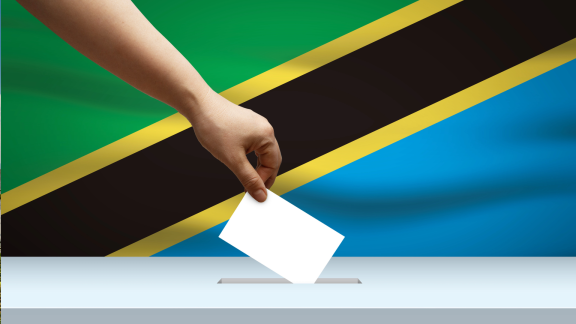
Climate in Tanzania: Important information for emigrants
Emigrating to Tanzania means adjusting to a tropical climate with warm temperatures between 25°C and 30°C all year round. Two rainy seasons - the major one from March to May and the minor one from November to December - bring most of the rainfall, while dry seasons characterize the rest of the year. Coastal areas are humid and tropical, while the highlands offer a more pleasant climate with cooler nights.
For anyone planning to emigrate to Tanzania, light clothing for warm months and warmer pieces for rainy seasons and the highlands are important. The dry seasons are perfect for safaris, while rainy seasons can limit mobility. In addition, climate-adapted accommodation and health precautions are essential in order to be optimally prepared for the conditions.
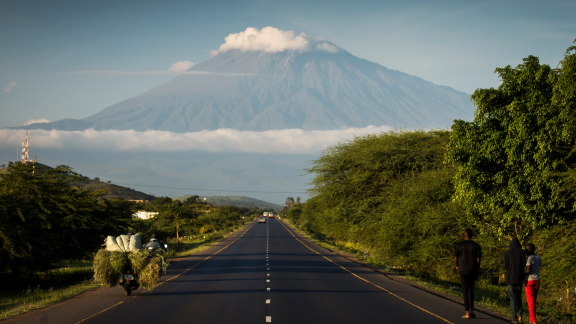
Healthcare system in Tanzania: Important facts for emigrants
Tanzania has made progress in the healthcare sector, but there are still challenges that are particularly relevant for anyone emigrating to Tanzania. Public hospitals are often overcrowded and poorly equipped, while private clinics in larger cities offer better, but also more expensive care. Medicines are sometimes difficult to obtain or very expensive, and the hygienic conditions in some regions do not meet European standards.
Thorough preparation is essential for anyone planning to emigrate to Tanzania. Private health insurance that also covers treatment abroad is essential. Important vaccinations are necessary before the trip, as diseases such as malaria or dengue fever are more common in Tanzania. A well-stocked first-aid kit, compliance with hygiene regulations - such as the use of clean water and the consumption of cooked food - as well as knowledge of nearby hospitals and doctors ensure greater safety. Careful precautions protect against illness and ensure reliable treatment in the event of an emergency.

Emigrating to Tanzania: An overview of the economic situation and quality of life
In 2024, Tanzania's gross domestic product per capita amounted to around 1,224.3 US dollars. The Gini coefficient of wealth describes the distribution of wealth. The indicator is an established, internationally comparable measure of wealth inequality. It is measured on a scale from zero to one. The higher the value, the greater the inequality. The Gini coefficient in Tanzania is expected to be 0.41 in 2025 (source: Statista).
Emigrating to Tanzania offers the opportunity to experience breathtaking nature, friendly people, a low cost of living and a diverse culture. Highlights such as Mount Kilimanjaro, the Serengeti and the beaches of Zanzibar make the country particularly attractive for those wishing to emigrate to Tanzania.
Nevertheless, there are challenges such as inadequate infrastructure, a weak healthcare system and bureaucratic hurdles. Basic knowledge of Swahili and cultural adaptability make it easier to get started.
Before emigrating to Tanzania, a work permit, a visa, suitable accommodation and a good network are essential. With careful preparation, Tanzania can become an enriching new home.

National holiday
Independence Day
Paradise Tanzanian landscape
Tanzania impresses with one of the most diverse landscapes in Africa, which delights both travelers and expats. Mount Kilimanjaro, Africa's highest mountain, offers snow-capped peaks, fertile soils and a pleasant highland climate. Lake Victoria beckons with picturesque villages and thriving fisheries, while the white sandy beaches of the coast and Zanzibar offer a tropical paradise for relaxed living.
National parks such as the Serengeti and the Ngorongoro Crater offer unique nature experiences and opportunities in tourism and nature conservation. As one of the most water-rich countries in Africa, Tanzania offers important bodies of water such as Lake Tanganyika and the Rufiji River, which are economically and scenically valuable.
From deserts in the north to tropical rainforests in the south, the country offers habitats for every taste. The diversity of landscapes creates a unique living environment with economic opportunities that enrich emigrants in the long term.
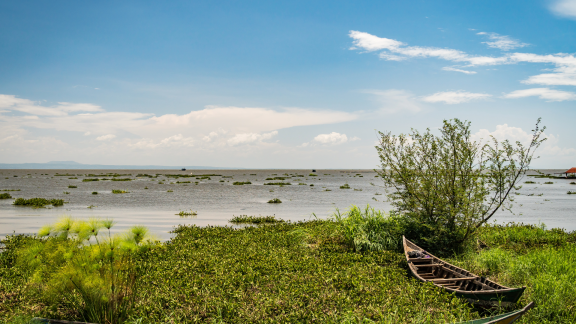
Emigrate to Tanzania - Entry Requirements
Entry is possible for German nationals with the following documents:
- Passport: Yes
- Temporary passport: Yes
- Identity card: No
- Temporary identity card: No
- Children's passport: Yes
Notes/minimum validity:
Travel documents must be valid for at least six months after the trip.

FAQs for emigrating to Tanzania
Where can I find relevant information about my country of entry and the entry regulations that apply there?
We have compiled destination country information as well as entry requirements and customs information for many countries in the Relocation Service section of our website and are constantly expanding this section.
Can I use my own container that I already own for the move with DACHSER & KOLB?
For every removal, which we at DACHSER & KOLB always offer as a door-to-door (full service) removal, a container is rented for the duration of the removal. We therefore do not offer the option of using your own container.
Who is responsible for my move abroad and the services I need there?
As a FIDI member, we work abroad with selected, long-standing partners who work in accordance with our service standards.
Are my removal goods insured in the event of damage?
For every overseas move, we naturally cover transportation insurance at current value for the used household goods and personal belongings
What types of transportation do you offer for overseas relocation?
It is generally possible to carry out overseas removals via air freight or sea freight. In the case of sea freight, it is possible to ship the removal goods as additional cargo (“LCL shipment” with Liftvan) or with a container (FCL shipment in 20 feet, 40 feet or 40 feet high cube). We will be happy to discuss which option is best for you in a personal consultation.
When and how must the move be paid for and what is the payment deadline?
You will receive an invoice a few weeks after placing the order and pay the full amount directly in advance.
Do I have to pay taxes and customs duties on my removal goods?
Removal goods can be imported tax and duty-free into most countries if you have a valid residence permit. We will be happy to check the options for importing the removal goods for your desired destination country in a personal consultation.
Are you interested in moving to Tanzania or another destination country?
Then do not hesitate and contact us today.
Sabrina Klier
Customer Service & Sales - AIR & SEA



